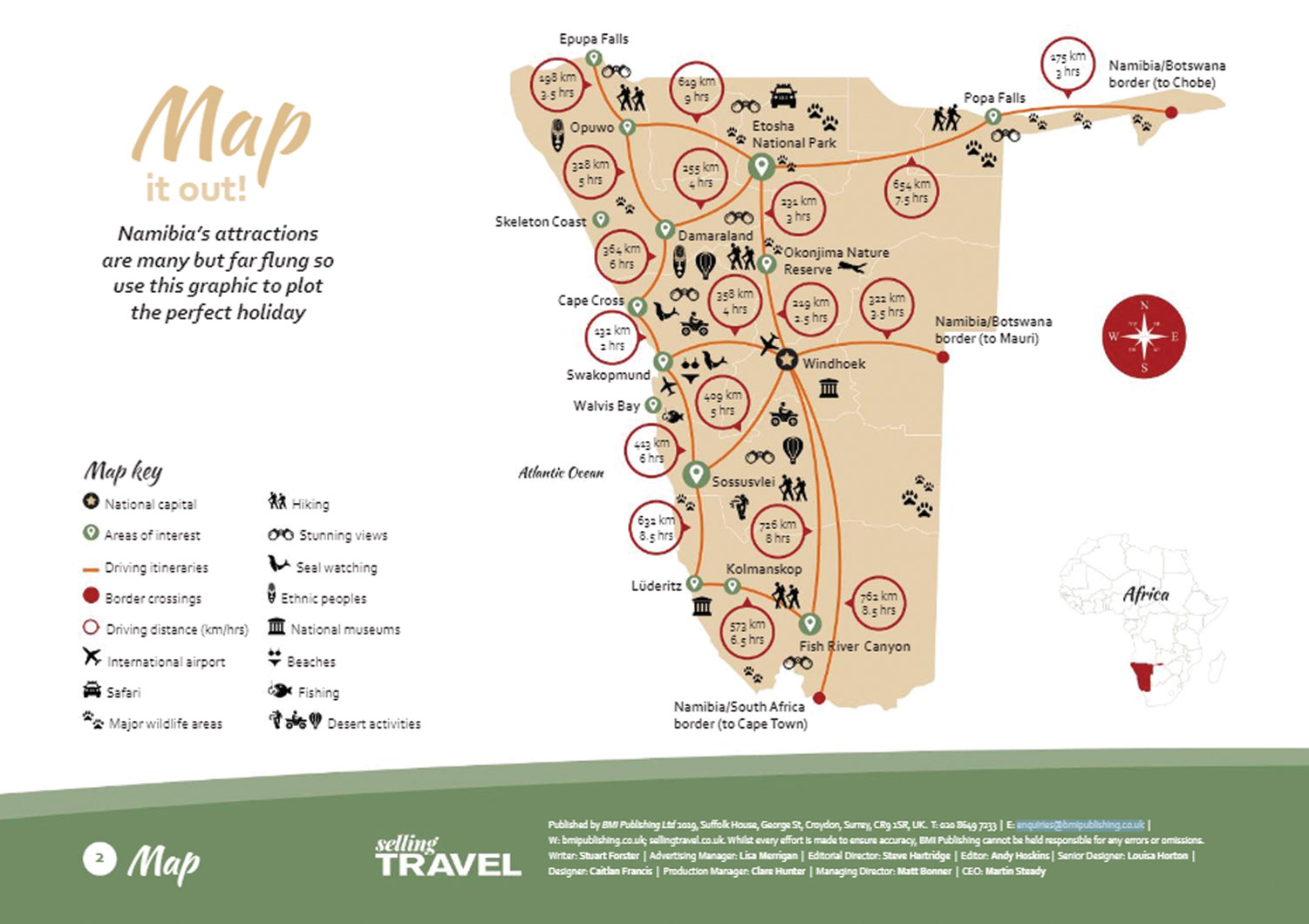There are no direct flights from the UK, however there are lots of airlines which now travel to Windhoek that offer convenient night flights. Time-wise, a typical journey can take 15 hours, including a stopover:
- Air Namibia (020 7644 8842, airnamibia.com) flies daily via Frankfurt from UK airports
- South African Airlines (20 8576 5500, flysaa.com) flies daily via Johannesburg from London Heathrow
- Qatar Airways (0333 320 2454, qatarairways.com) flies four times weekly via Doha from London Heathrow
- Ethiopian Airlines (0800 016 3449, ethiopianairlines.com) flies once a week via Addis Abbaba from London Heathrow
- KLM (0871 231 0000, klm.com) flies from 17 UK airports three times weekly, via Amsterdam

